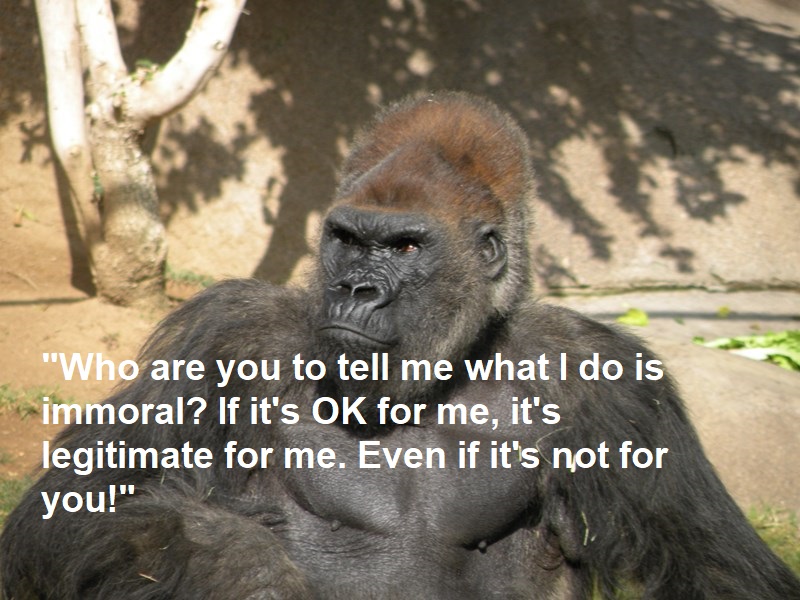
Part Six: If God Does Not Exist, Evil Cannot Be Condemned
There is a second element to the moral argument (see last week’s blog post), which we’ll explore this week. If God does not exist, there is no moral obligation to avoid participating in evil.
Within an atheistic worldview, people are supreme beings. As such, no higher authority sets standards for determining what is good or evil. Hence, individuals or their societies are free to determine their own moral conduct. But this creates a grave, far-reaching moral dilemma. What if they disagree on what constitutes immoral behavior? Since people are supreme beings in an atheistic worldview, no higher authority exists to arbitrate between opposing views. It logically follows that each view must agree to the “moral truth” of the other. This gives birth to moral relativism and sounds the death knell for any obligation to moral fidelity.
Atheists claim moral values can exist even if God doesn’t. Human conscience—indeed, every facet of human beliefs and behavior—have an evolutionary origin. However, there are numerous problems with this. To begin with, there is not a whit of evidence that moral values have an evolutionary origin. Moreover, such a preposterous theory is meaningless because the same evolutionary forces that condemn murder and stealing must also justify bestiality, rape, and other heinous behaviors. Evolutionists can’t have it both ways. They can’t justify the evolution of moral values on the one hand and the evolution of contradicting immoral values on the other. A self-contradicting theory is false.
A greater problem with the evolutionary explanation of ethics is that it fails to provide any reason why rape, murder, and stealing are morally wrong. If someone wants to do participate, why not? What if an entire culture decides that incest, infanticide, rape, and killing millions of Jews is morally justified? In the absence of a moral Lawgiver who transcends human relativism, there is no objective criterion by which to judge and condemn such “values” nor any reason not to engage in them. Without God, at best, ethics are reduced to the fancy and desires of the most powerful persons or the political power in control. At worse, moral anarchy becomes the law of the land.
Only if God exists—the moral Lawgiver—can there be any criteria for identifying evil and holding people accountable when they engage in evil acts. There is a moral “line in the sand” beyond which no sane person or culture will tolerate certain behaviors. This confirms the existence of God. As philosopher and theologian, William Lane Craig put it, “If moral values cannot exist without God and moral values do exist, then it follows logically and inescapably that God exists.” (William Lane Craig, “Why I Believe God Exists,” in Why I Am A Christian, 75) ©